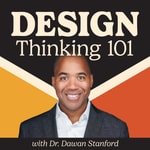The New Yorker Radio Hour – Details, episodes & analysis
Podcast details
Technical and general information from the podcast's RSS feed.

The New Yorker Radio Hour
WNYC Studios and The New Yorker
Frequency: 1 episode/3d. Total Eps: 150

Recent rankings
Latest chart positions across Apple Podcasts and Spotify rankings.
Apple Podcasts
🇨🇦 Canada - newsCommentary
27/07/2025#10🇨🇦 Canada - news
27/07/2025#54🇬🇧 Great Britain - newsCommentary
27/07/2025#8🇬🇧 Great Britain - news
27/07/2025#79🇩🇪 Germany - newsCommentary
27/07/2025#9🇺🇸 USA - newsCommentary
27/07/2025#14🇺🇸 USA - news
27/07/2025#55🇫🇷 France - newsCommentary
27/07/2025#25🇨🇦 Canada - newsCommentary
26/07/2025#14🇨🇦 Canada - news
26/07/2025#66
Spotify
🇺🇸 USA - news
27/07/2025#36→🇺🇸 USA - news
26/07/2025#36→🇺🇸 USA - news
25/07/2025#36→🇺🇸 USA - news
24/07/2025#36↗🇺🇸 USA - news
23/07/2025#37→🇺🇸 USA - news
22/07/2025#37↗🇺🇸 USA - news
21/07/2025#38↗🇺🇸 USA - news
20/07/2025#39↗🇺🇸 USA - news
19/07/2025#40↗🇺🇸 USA - news
18/07/2025#41↗
Shared links between episodes and podcasts
Links found in episode descriptions and other podcasts that share them.
See allRSS feed quality and score
Technical evaluation of the podcast's RSS feed quality and structure.
See allScore global : 58%
Publication history
Monthly episode publishing history over the past years.
The Writer Danzy Senna on Kamala Harris and the Complexity of Biracial Identity in America
Episode 956
vendredi 30 août 2024 • Duration 25:57
In fiction and nonfiction, the author Danzy Senna focusses on the experience of being biracial in a nation long obsessed with color lines. Now that Kamala Harris is the Democratic candidate for President, some of Senna’s concerns have come to the fore in political life. Donald Trump attacked Harris as a kind of race manipulator, implying that she had been Indian American before becoming Black for strategic purposes. The claim was bizarre and false, but Senna feels that it reflected a mind-set in white America. “Mixed-race people are sort of up for debate and speculation, and there’s a real return to the idea that your appearance is what matters, not what your background is or your identity,” she tells Julian Lucas, who wrote about Senna’s work in The New Yorker. “And if your appearance is unclear to us, then we’re going to debate you and we’re going to discount you and we’re going to accuse you of being an impostor.” Senna talks about why she describes people like herself and Lucas using the old word “mulatto,” despite its racist etymology. “The word ‘biracial’ or ‘multiracial’ to me is completely meaningless,” she says, “because I don’t know which races were mixing. And those things matter when we’re talking about identity.” Senna’s newest novel, “Colored Television,” follows a literary writer somewhat like herself, trying to find a new career in the more lucrative world of TV.
A Pulitzer Prize Winning Take on Finance
Episode 955
mardi 27 août 2024 • Duration 19:36
In honor of what is for many people the final days of summer, the New Yorker Radio Hour team presents a conversation that may inspire your end-of-summer reading list: David Remnick talks to Hernan Diaz about his book, Trust, which won a Pulitzer Prize in 2023. The novel’s plot focuses on the daughter of eccentric aristocrats after she marries a Wall Street tycoon of dubious ethics during the Roaring Twenties. The novel is told by four people in four different formats, which offer conflicting accounts of the couple’s life, the tycoon’s misdeeds, and his role in the crash of 1929. “What I was interested in, and this is why I chose finance capital, I wanted a realm of pure abstraction,” he tells David Remnick. Diaz’s first book, In The Distance, will be released in hardback for the first time in October.
What Kamala Harris Needs to Win the Presidency, from a Veteran of Hillary Clinton’s Campaign
Episode 945
vendredi 26 juillet 2024 • Duration 32:22
Kamala Harris will face barriers as a woman running for the Presidency. “Women constantly have to credential themselves,” Jennifer Palmieri, a veteran of Democratic politics who served in the Clinton Administration, says. She was also the director of communications for the Obama White House, and then for Hillary Clinton’s 2016 Presidential campaign. Harris will “need to remind people of what she has done in her career and what she’s done as Vice-President, because people assume that women haven’t accomplished anything.” But Harris also has notable strengths as a candidate, and, having avoided a bruising primary campaign—and having been handed a torch from the incumbent—she has advantages that no other woman running for office has had. For a woman candidate, the world has changed since 2016, Palmieri believes. She shares insights into how Joe Biden was finally persuaded to step out of the race, and explains what she meant by advising women to “nod less and cry more.”
Hernan Diaz’s “Trust,” a Novel of High Finance
Episode 748
mardi 26 septembre 2023 • Duration 20:53
The daughter of eccentric aristocrats marries a Wall Street tycoon of dubious ethics during the Roaring Twenties. That sounds like a plot that F. Scott Fitzgerald might have written, or Edith Wharton. But “Trust,” by the writer Hernan Diaz, is very much of our time. The novel is told by four people in four different formats, which offer conflicting accounts of the couple’s life, the tycoon Andrew Bevel’s misdeeds, and his role in the crash of 1929. And though a book like “The Great Gatsby” tends to skirt around the question of how the rich make their money, Hernan Diaz puts that question at the heart of “Trust.” “What I was interested in, and this is why I chose finance capital, I wanted a realm of pure abstraction,” he tells David Remnick. Diaz was nearly unknown when “Trust,” his second novel, won the Pulitzer Prize this year.
Kelly Clarkson on Writing About Divorce
Episode 747
vendredi 22 septembre 2023 • Duration 30:29
Twenty years after her breakout on “American Idol,” Kelly Clarkson released an album called “Chemistry” that deals with the long arc of a relationship and her recent divorce. She sat down to talk with Hanif Abdurraqib, a music writer passionate about the craft of songwriting. “This literally was written in real time,” Clarkson reflects. “That was me being indecisive. Man, I have kids. Do I want to do this? Can I try again?” But writing about divorce as one of the best-known celebrities in America is very different from a young artist’s heartbreak anthem. “It’s easy to hide in metaphors when it’s not the biggest thing that’s ever happened,” she says. “Everyone’s going to know. Unfortunately my life is very public, especially in the rough times.”
Plus, Robert Samuels, a Pulitzer Prize-winning writer on politics and race, shares his secret indulgence: watching classic figure-skating routines on YouTube.
Naomi Klein Speaks with Jia Tolentino about “Doppelganger”
Episode 746
mardi 19 septembre 2023 • Duration 20:49
For twenty-some years, Naomi Klein has been a leading thinker on the left. She’s especially known for the idea of disaster capitalism: an analysis that the forces of big business will exploit any severe disruption to take over more space in our lives. She was often confused with another prominent political writer, Naomi Wolf—once a feminist on the left who has, in recent years, embraced conspiracy theories on the right and is now on good terms with Steve Bannon. Klein’s new book, “Doppelganger,” starts with this simple case of mistaken identity and broadens into an analysis of our political moment, which she describes as “uncanny” in the psychological sense. “Freud described the uncanny as that species of frightening that changes what was once familiar to something unfamiliar,” she tells the staff writer Jia Tolentino. “It’s that weirdness of ‘I think I know what this is, but it’s not what I think.’ ” Klein argues that the left and the right have become doppelgangers of one another—and that denialism regarding climate change has widened to any number of topics, including the claim that Joe Biden is dead and is being played by an actor. “Whenever you don’t like reality, you can just say that it’s not real,” she says.
A Solution For the Chronically Homeless, and Listening to Taylor Swift in Prison
Episode 745
vendredi 15 septembre 2023 • Duration 29:37
About 1.2 million people in the United States experience homelessness in a given year—you could nearly fill the city of Dallas with the unhoused. But there are proven solutions. For the chronically homeless, a key strategy is supportive housing—providing not only a stable apartment, but also services like psychiatric and medical care on-site. The New Yorker contributor Jennifer Egan spent the past year following several individuals as they transitioned into a new supportive-housing building in Brooklyn. She found that this housing model works and argues that it could be scaled up nationally for less than the cost of emergency services for the homeless. But “no one,” Egan notes ruefully, “wants to see that line item in their budget.” Plus, Joe Garcia, an inmate serving a life sentence for murder in California’s High Desert State Prison, reads from his essay “Listening to Taylor Swift in Prison,” recently published by The New Yorker.
Richard Brody Makes the Case for Keeping Your DVDs
Episode 744
mardi 12 septembre 2023 • Duration 13:21
At the end of this month, after more than two decades, Netflix is phasing out its DVD-rental business. While that may not come as a surprise given the predominance of streaming platforms, it’s a great loss to cinephiles, according to the New Yorker’s Richard Brody. Streaming services routinely drop titles from circulation, and amazing films may be lost to moviegoers. “Physical media is what protects us from being at the mercy of streaming services for our movies and our music,” Brody says. “It’s like a library at home.” Brody gives the producer Adam Howard a peek into his own personal stash of films, and picks a few DVDs of films he would take with him in a fire: Godard’s “King Lear” (“the greatest film ever made – literally”); “Chameleon Street,” by Wendell B. Harris, Jr.; “Stranded” and “The Plastic Dome of Norma Jean,” by Juleen Compton; and a box set of five films by John Cassavetes.
A Master Class with David Grann
Episode 743
vendredi 8 septembre 2023 • Duration 34:00
David Grann is a staff writer for The New Yorker and the author of two nonfiction books that topped the best-seller list this summer: “The Wager” and “Killers of the Flower Moon,” from 2017, which Martin Scorsese has adapted into a film opening in October. Grann is among the most lauded nonfiction writers at The New Yorker; David Remnick says that “his urge to find unique stories and tell them with rigor and style is rare to the vanishing point.” Grann talks with Remnick about his beginnings as a writer, and about his almost obsessive research and writing process. “The trick is how can you tell a true story using these literary techniques and remain completely factually based,” Grann says. “What I realized as I did this more is that you are an excavator. You aren’t imagining the story—you are excavating the story.” Grann recounts travelling in rough seas to the desolate site of the eighteenth-century shipwreck at the heart of “The Wager,” his most recent book, so that he could convey the sailors’ despair more accurately. That book is also being made into a film by Scorcese. “It’s a learning curve because I’ve never been in the world of Hollywood,” Grann says. “You’re a historical resource. … Once they asked me, ‘What was the lighting in the room?’ I thought about it for a long time. That’s something I would not need to know, writing a book.” But Grann is glad to be in the hands of an expert, and keep his distance from the process. “I’m not actually interested in making a film,” he admits. “I’m really interested in these stories, and so I love that somebody else with their own vision and intellect is going to draw on these stories and add to our understanding of whatever this work is.”
Alone and on Foot in Antarctica
Episode 742
mardi 5 septembre 2023 • Duration 25:00
Henry Worsley was a husband, father, and an officer of an élite British commando unit; also a tapestry weaver, amateur boxer, photographer, and collector of rare books, maps, and fossils. But his true obsession was exploration. Worsley revered the Antarctic explorer Ernest Shackleton and he had led a 2009 expedition to the South Pole. But Worsley planned an even greater challenge. At fifty-five, he set out to trek alone to ski from one side of the Antarctic continent to the other, hauling more than three hundred pounds of gear and posting an audio diary by satellite phone. The New Yorker staff writer David Grann wrote about Worsley’s quest, and spoke with his widow, Joanna Worsley, about the painful choice she made to support her husband in a mortally dangerous endeavor.
This segment originally aired March 2, 2018.









